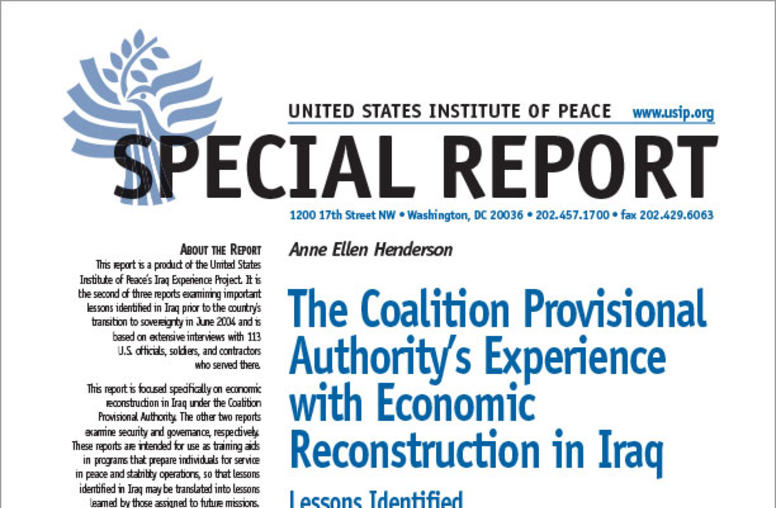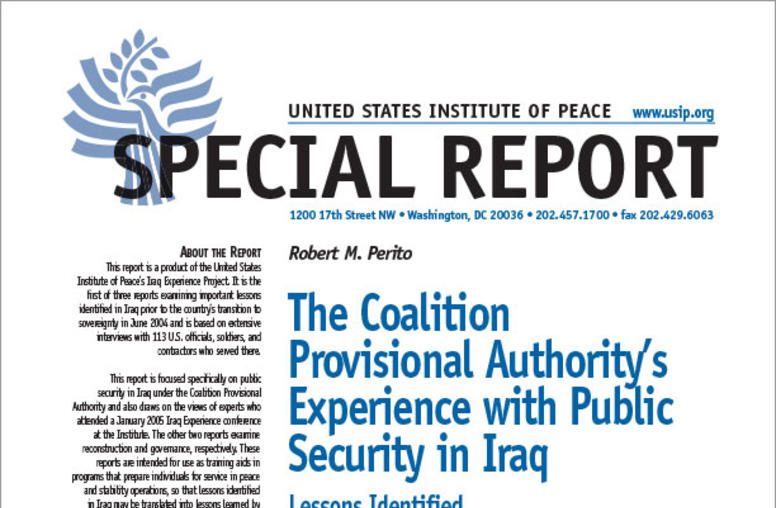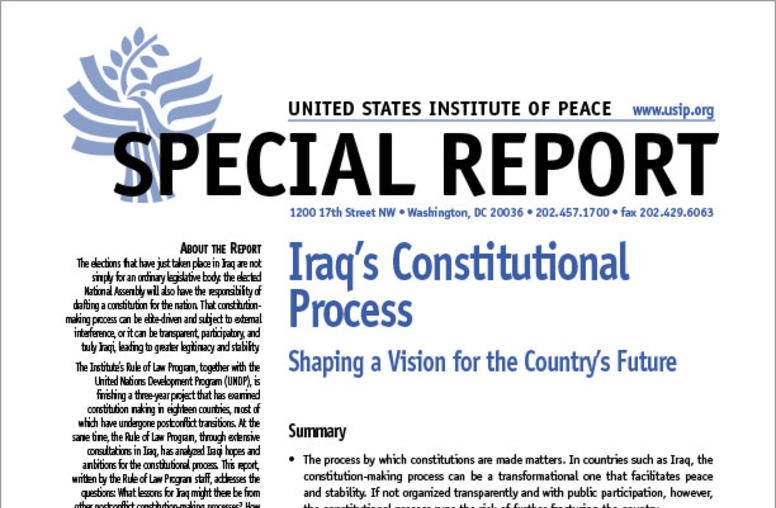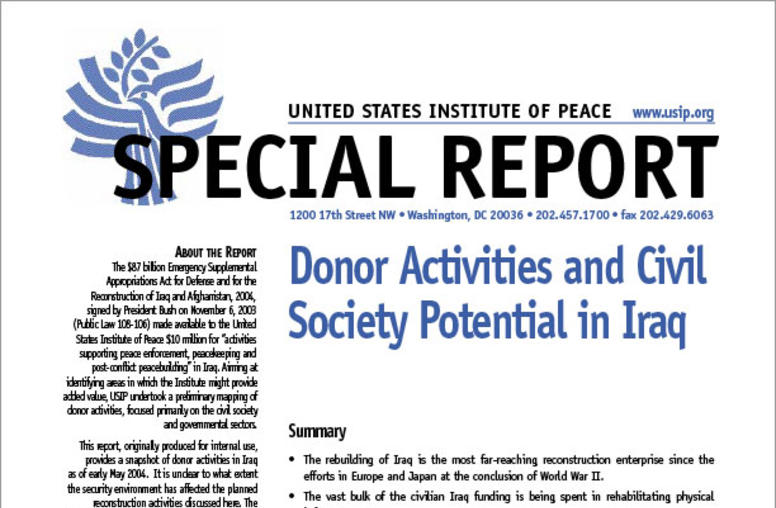Publications
Articles, publications, books, tools and multimedia features from the U.S. Institute of Peace provide the latest news, analysis, research findings, practitioner guides and reports, all related to the conflict zones and issues that are at the center of the Institute’s work to prevent and reduce violent conflict.

The Coalition Provisional Authority's Experience with Economic Reconstruction in Iraq: Lessons Identified
Summary Iraq's economic reconstruction under coalition occupation was notable for both impressive accomplishments and serious shortcomings. Many successful reconstruction initiatives shared essential elements: they were not affected by security disruptions; they were treated as top priorities; their funding was streamlined and their impact was quick; and they built on existing Iraqi capacity. Unsuccessful reconstruction initiatives had very different elements in common. Policy failure o...

The Coalition Provisional Authority's Experience with Public Security in Iraq: Lessons Identified
Summary Important lessons for future U.S. peace and stability operations can be found in the civil upheaval that occurred in Iraq following the collapse of Saddam Hussein's regime. These include lessons pertaining to public order, street crime, border control, and police recruitment, training, and combat. Large-scale breakdowns in public order should be anticipated in the aftermath of international interventions, particularly in societies emerging from brutal oppression. However, U.S....
Iraq's Next Milestone: Iraqi Constitution-Making
A Congressional briefing on the prospects for Iraq constitution-making.

Iraq's Constitutional Process: Shaping a Vision for the Country's Future
The elections that have just taken place in Iraq are not simply for an ordinary legislative body: the elected National Assembly will also have the responsibility of drafting a constitution for the nation. That constitution-making process can be elite-driven and subject to external interference, or it can be transparent, participatory, and truly Iraqi, leading to greater legitimacy and stability.
Iraq's Constitutional Process: Shaping a Vision for the Country's Future (Arabic Edition)
Summary The process by which constitutions are made matters. In countries such as Iraq, the constitution-making process can be a transformational one that facilitates peace and stability. If not organized transparently and with public participation, however, the constitutional process runs the risk of further fracturing the country.
Institute Training Program Helps Iraqis Identify And Pursue Core National Interests
USIPeace Briefing looks at a recent conflict management training session for Iraqis in Washington, D.C.
Peace Agreements: Iraq
Memorandum of Understanding between the United Nations and the Republic of Iraq (02-23-1998) Posted by USIP Library on: November 20 1998 Source Name: E-mail forwarded from Michael Gurstein to the UNReform listserv, citing the text obtained by the Associated Press. Source URL: Gurstein, M. (1998, Feb 26) UN-Iraq Agreement. UNReform [Online] Available E-mail: unreform@ccen.uccb.ns.ca (1998, Feb. 26) Date received via e-mail: February 23, 1998
Politics Should Not Delay Iraqi Elections
As the two-month countdown begins for the January 30 elections in Iraq, postponement is a subject of intense debate in both Iraq and the United States.

Donor Activities and Civil Society Potential in Iraq
The $87 billion Emergency Supplemental Appropriations Act for Defense and for the Reconstruction of Iraq and Afghanistan, 2004, signed by President Bush on November 6, 2003 (Public Law 108-106) made available to the United States Institute of Peace $10 million for “activities supporting peace enforcement, peacekeeping and post-conflict peacebuilding” in Iraq. Aiming at identifying areas in which the Institute might provide added value, the Institute undertook a preliminary mapping of donor ac...
Donor Activities and Civil Society Potential in Iraq (Arabic Edition)
Summary The rebuilding of Iraq is the most far-reaching reconstruction enterprise since the efforts in Europe and Japan at the conclusion of World War II. The vast bulk of the civilian Iraq funding is being spent in rehabilitating physical infrastructure. About $730 million is now programmed for democracy, civil society, human rights, and refugees, including the Institute’s conflict management activities.